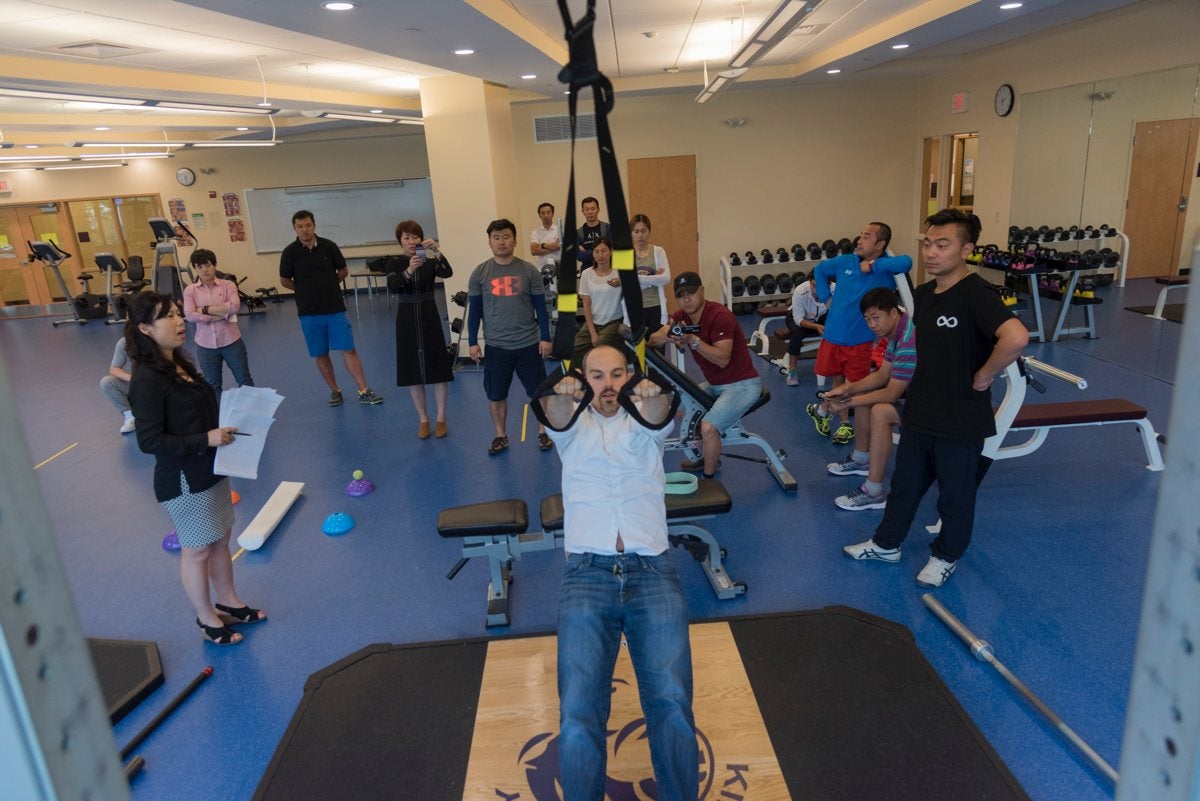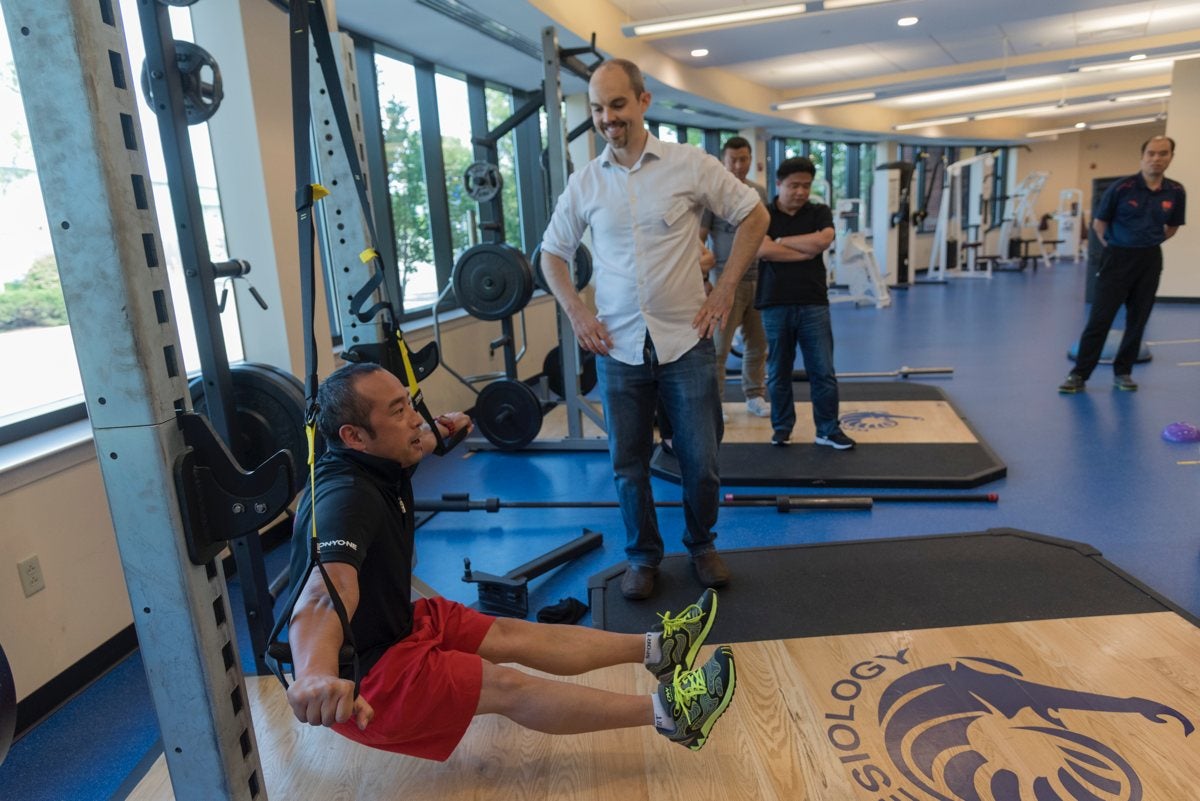KINGSTON, R.I., Aug. 22, 2017 — With the summer sun high in the sky, Chinese Olympic Committee delegates, NHL coaches, college trainers and exercise scientists had snow and ice on their minds as they convened at the University of Rhode Island earlier this month.
More than two dozen Chinese Olympic coaches and officials came to URI for a series of talks and hands-on demonstrations to improve training for winter Olympic sports, including hockey and snowboarding, said Gary Liguori, dean of the College of Health Sciences, part of the University’s Academic Health Collaborative.
The Olympic delegation is preparing its athletes for the 2018 Winter Games in PyeongChang, South Korea, and the 2022 games in Beijing, China, said Jacob Earp, assistant professor of kinesiology and a former strength and conditioning coach with Australia’s Olympic Committee. Earp led a lecture and workshop on snowboard conditioning.
Liguori worked with colleagues in Georgia who earlier hosted the same delegation and brought in top experts from their fields from around the Northeast, Earp said. Workshop leaders included Mike Macchioni, Boston Bruins head strength and conditioning coach; John Castellani, physiologist with the U.S. Army Research Institute of Environmental Medicine, Thermal & Mountain Medicine Division; Mike Mallon, executive director of the USA Snowboard Association; David Pezzullo, physical therapist with the Boston Bruins and Providence Bruins; Peter Belisle, head coach of the University of Massachusetts-Boston hockey team; and Geoffrey Ebbs, strength and conditioning coach with the University of Massachusetts-Boston hockey team.

Workshop topics, conducted with a translator, included in-game coaching strategies, in-season and off-season training, injury prevention and assessment, cold-weather injuries and concerns for elite athletes, and sports specific training. “Our focus was a little more on long-term goals, with the 2022 games in mind,” Earp said. “We talked about how we approach and structure training.”
He said Mallon also discussed how to keep training structured but still have fun by rewarding effort and participation as well as success, which is different from the Chinese system. And participants learned about applied research on injury prevention and performance from Castellani.
“Everyone seemed to like the program; we hope to continue our involvement and collaboration with the people involved,” Earp said.

